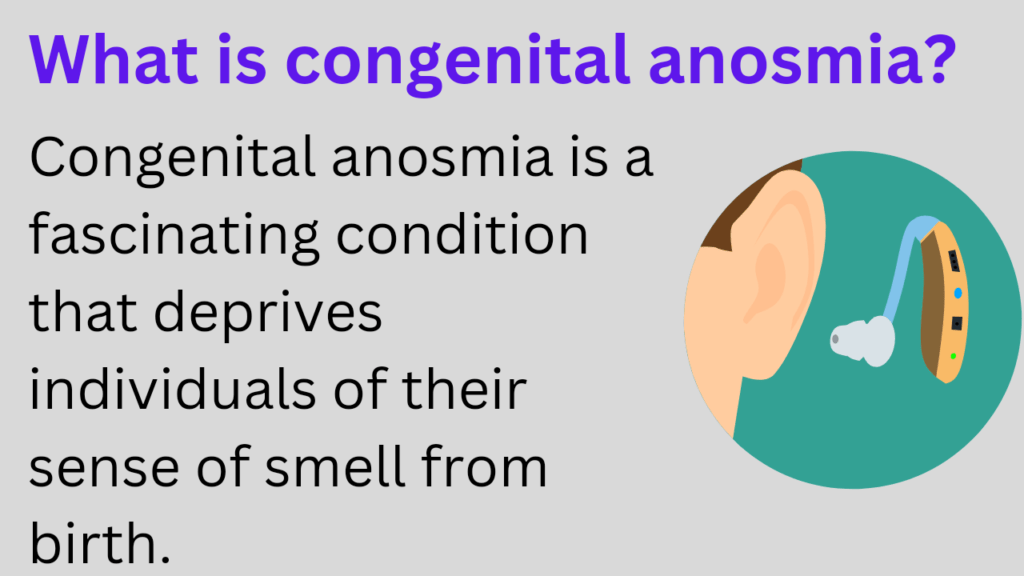Imagine a world where the fragrant blooms of spring, the aroma of freshly baked bread, or the comforting scent of a loved one’s perfume are forever beyond your reach.
For those born with congenital anosmia, this is their reality. Congenital anosmia is a fascinating condition that deprives individuals of their sense of smell from birth.
What is Congenital Anosmia?
Anosmia is the medical term used to describe the loss of the sense of smell, and congenital anosmia refers to individuals who are born without this olfactory ability.
Unlike acquired anosmia, which results from injury, illness, or other external factors, congenital anosmia is present from infancy.
The sense of smell plays a pivotal role in our lives. It allows us to savor flavors and connect emotionally with our surroundings.
The World of the Anosmic: A Fragrance-Free Perspective
At first glance, one might perceive congenital anosmia as a profound loss, but for those who have never known the world of scents, it is their normality. They develop alternative ways of understanding and interacting with their environment, relying on their other senses to compensate for the lack of smell.
Interestingly, some anosmics find delight in the fact that they are immune to unpleasant odors, such as the stench of rotting garbage or other strong malodors. This can be seen as a remarkable advantage, as they remain unperturbed by smells that most people find highly disagreeable.
Additionally, without the influence of scent, their taste experience may differ from others’. Taste is closely intertwined with smell, and the absence of the latter can lead to heightened sensitivity to flavors.
As a result, congenital anosmics often become discerning food enthusiasts, relishing the subtleties of various tastes that might go unnoticed by those with a functional sense of smell.
Exploring the Science of Congenital Anosmia
The study of congenital anosmia has captivated researchers and medical professionals for many years. Understanding how the olfactory system develops in utero and what goes wrong to cause congenital anosmia provides valuable insights into the complexities of human sensory perception.
Genetics often underpin the condition, with specific gene mutations linked to congenital anosmia. In some cases, the lack of olfactory receptors prevents the brain from processing smell-related information, leading to a complete absence of the sense of smell.
Studying these genetic variations not only helps us grasp the mechanisms of anosmia but also contributes to advancements in treating acquired anosmia.
Thriving with Congenital Anosmia
Despite the challenges that come with congenital anosmia, many individuals lead fulfilling and successful lives. They develop an acute sense of observation, noticing details that others might overlook. Their unique perspective offers a fresh outlook on the world, fostering creativity and empathy.
However, it is essential to acknowledge that congenital anosmia can present certain risks, especially in situations where anosmics might fail to detect potentially hazardous odors, such as gas leaks or smoke.
Therefore, taking necessary precautions and being vigilant in hazardous environments is crucial.
